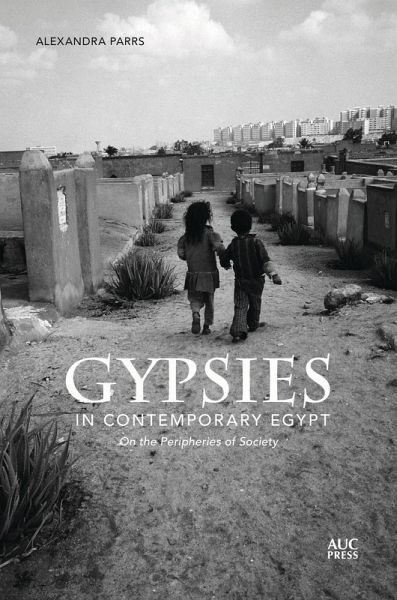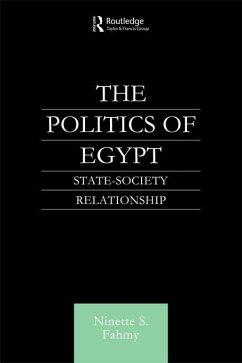
Gypsies in Contemporary Egypt (eBook, ePUB)
On the Peripheries of Society

PAYBACK Punkte
13 °P sammeln!
Little is known about Egypt's Gypsies, called Dom by scholars, but variously referred to by Egyptians as Ghagar, Nawar, Halebi or Hanagra, depending on their location. Moreover, most Egyptians are oblivious to the fact that there are today large numbers of Gypsies dispersed from the outskirts of villages in Upper Egypt to impoverished neighborhoods in Cairo and Alexandria. In Gypsies in Contemporary Egypt sociologist Alexandra Parrs draws on two years of fieldwork to explore how Dom identities are constructed, negotiated, and contested in the specifically Egyptian national context. With an eye...
Little is known about Egypt's Gypsies, called Dom by scholars, but variously referred to by Egyptians as Ghagar, Nawar, Halebi or Hanagra, depending on their location. Moreover, most Egyptians are oblivious to the fact that there are today large numbers of Gypsies dispersed from the outskirts of villages in Upper Egypt to impoverished neighborhoods in Cairo and Alexandria. In Gypsies in Contemporary Egypt sociologist Alexandra Parrs draws on two years of fieldwork to explore how Dom identities are constructed, negotiated, and contested in the specifically Egyptian national context. With an eye to the pitfalls and evolution of scholarly work on the vastly more studied European Roma, she traces the scattered representations of Egyptian Dom, from accounts of them by nineteenth-century European Orientalists to their portrayal in Egyptian cinema as belly dancers in the 1950s and beggars and thieves more recently. She explores the boundaries-religious, cultural, racial, linguistic-between Dom and non-Dom Egyptians and examines the ways in which the Dom position themselves within the limitations of media discourses about them and in turn differentiate themselves from the dominant population. This interplay of attitudes, argues Parrs, sheds light on the values and markers of belonging of the majority population and the paradigms of nation-state formation at the governmental level. Based on extensive interviews with government workers and ordinary individuals in routine contact with the Dom, as well with Dom engaged in a variety of trades in Cairo and Alexandria, Gypsies in Contemporary Egypt is about the search for the fragments of identity of the Egyptian Dom.
Dieser Download kann aus rechtlichen Gründen nur mit Rechnungsadresse in A, D ausgeliefert werden.













